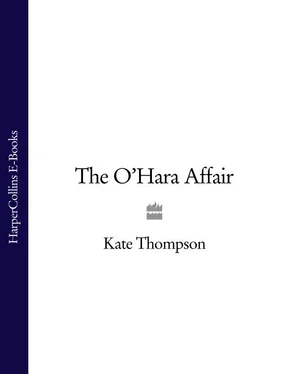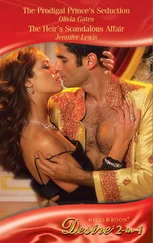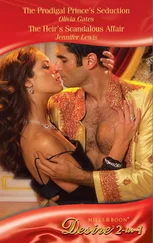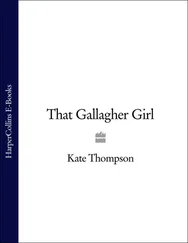‘There’s a child star in the movie?’
‘Well, she’s twenty-something, but she behaves like a child. Her name is Nasty – short for Anastasia – Harris.’
‘Oh – I’ve heard about her. Didn’t she get married recently, to some film star old enough to be her daddy?’
‘Yeah. She married Jay David.’
‘Of course! Hollywood royalty.’
‘And she’s living up to it. She’s every bit her sugar daddy’s little princess.’
‘Have you met him?’
‘No. He can’t take time off his schedule to visit Ireland. Rumour has it he’ll be flying in on his Gulfstream for the wrap party, though.’
‘Is she any good as an actress?’
‘According to her husband – who is, of course, completely non-partisan – Nasty is the new Julia Roberts. Her talent will blaze forth into the world like a supernova. And boy, does she believe it. The problem with princesses like her is that the more their demands are met, the more outrageous they become.’
‘Like J. Lo insisting on her coffee being stirred counterclockwise?’
‘You got it. Nasty insists on having rose petals scattered in the loo bowl—’
‘No!’
‘Yes. And the bed sheets in her trailer – Egyptian cotton, of course – have to be changed every day. And this morning she decided that her character should have a parasol, even though parasols were unheard of in nineteenth-century Coolnamara.’
‘Shouldn’t that be wardrobe’s problem? I thought your job was strictly set-dressing?’
‘The line between the two gets blurred, sometimes. I spotted a lovely découpage screen in the transport van this morning, by the way. I thought I’d nab it for you as a housewarming present when we’re wrapped.’
‘You’re not going to steal it?’
‘No – I’ll get it at cost. And it’s genuine Victorian, not repro.’
‘Thanks. That’s sweet of you.’
‘Hang on two seconds, Dervla.’ There came the mumbling of a man’s voice in the background, and Río said: ‘No, no, you great lummox – not you, Dervla – a dudeen is a clay pipe. Yeah – and be careful – they break easily.’
A Victorian screen would look great in the drawing room, Dervla decided, as she doodled a chimney on to her house. They could set it in front of the door of a winter’s evening to stop draughts – although of course, with double-glazed windows and underfloor heating and a blazing turf fire, there wouldn’t be any draughts. Scribbling a plume of smoke puffing from her chimneypot, Dervla pictured herself and her husband sitting on either side of the fireplace reading their books in companionable silence, Christian’s trusty Dalmatian at his feet. She’d definitely start reading Dickens – preferably in leather-bound editions. Or maybe she’d take up knitting? Knitting had a certain cachet: all the actresses on The O’Hara Affair were busy with five-ply Guernsey wool and number twelve needles, according to Río.
‘Sorry about that.’ Río was back on the phone. ‘The feckin’ eejit hadn’t a clue what a dudeen was. Probably thought it meant a hot girl. So. Tell me more of your news. How’s your gaff shaping up?’
‘Well, the bathroom’s nearly finished, and the kitchen.’
‘Utility, too?’
‘Yes. But we’re just glorified campers at the moment. The only real piece of furniture we have is the bed.’
‘Sure, isn’t that all you loved-up pair need?’
Dervla smiled. ‘I have to confess I miss my fix of Corrie.’
‘You mean you don’t have a TV?’
‘No. They delivered the big screen we ordered for Daphne, but forgot ours. Oops. That reminds me –I’d better run down and set up the channels before she arrives. And double oops – I forgot to turn her heating on.’
‘But it’s not cold.’
‘She’s a fragile little old lady, Río. She feels the cold, especially in the evenings.’
‘Be off with you, so. Call me tomorrow and let me know how the welcome committee went, won’t you?’
‘Will do. Bye, Río.’
Dervla put the phone down, added a tail to the spotty dog sitting on the doorstep of her two-dimensional house, then scampered downstairs, the sound of her feet on the bare boards echoing around the empty space.
In the hallway, she retrieved her shoes, and made for the back door. As she crossed the stable yard, the crunching of gravel startled a cat that had been snoozing in a patch of sun. As it skedaddled, Dervla wondered if she should try and encourage it by leaving food out, but then realized that the Old Rectory would be no place for a cat once Kitty the Dalmatian moved in.
In Daphne’s cottage, Dervla’s feet made no sound. Footsteps here were muffled by the pure wool deep-pile carpet that had been laid just days ago. The colour matched the curtains, made to measure in a rose-coloured brocade, which was echoed in the loose covers on sofas and armchairs. Much of Daphne’s furniture had been shipped from her house in London, so that her new surroundings would have a reassuring familiarity to them. The furniture included a very elegant walnut escritoire, a Regency rosewood bookcase, and a nineteenth-century beech day bed; her exquisite collection of japonaiserie was displayed in a bevelled glass case that ran the length of an entire wall. Christian had told her that a pair of porcelain vases dating from the K’ang-hsi period (whenever that was) were worth in the region of 20,000 euros, and Dervla thanked Christ that she would not be responsible for dusting them.
She flicked the main switch that controlled the heat, then wandered through Daphne’s new home to make final checks. The conversion of the old outbuildings had cost Christian a lot of money – more than had been spent so far on the refurbishment of the Old Rectory. But they had looked upon it as an investment. Once the old lady died or had to be moved into proper residential care, the cottage could still generate income as an up-market artist’s retreat. Dervla had already worded the ad that she’d place in such select publications as The Author magazine:
Coolnamara, West of Ireland. Comfortable, well-equipped, single-storey house, sympathetically converted from period mews buildings adjoining eighteenth-century manor. Lissamore village with shops, pubs and seafood restaurant just 10 mins; fabulous beach and mountain walks nearby. Perfectly lovely, undisturbed surroundings: ideal for writer/artist.
Dervla didn’t much like herself for contemplating the death of Christian’s mother, but she was a pragmatist, and – like all estate agents – was unsentimental when property was involved. Naturally, it behoved Christian to take care of Daphne in her declining years, and Dervla respected his decision to bring her home to Coolnamara. While her mother-in-law lived here, Dervla would do all she could to make her welcome and comfortable. She’d spent all weekend getting the place ready, with the help of a local girl, Bronagh. Between them, they had arranged Daphne’s furniture and displayed her paintings and photographs to advantage; they’d filled vases with flowers (Christian had specified that yellow lilies were her favourite on account of the vibrancy of the colour and the headiness of their scent) and made beds and stocked fridge and freezer. Dervla had even unpacked her mother-in-law’s clothes, marvelling at the vintage labels on many of the garments as she’d hung them in the wardrobe: Balenciaga, Givenchy, Lanvin. Daphne Vaughan had been a classy dame. A model, Christian had told her, whose career could have taken her to Paris if she hadn’t decided to get married.
The wedding of Daphne to the honourable Jeremy Vaughan had been recorded in all the society pages as the event of the year 1945. Christian had showed her the cuttings in the scrapbooks that had arrived, along with all his mother’s other effects. They showed the couple on their wedding day, on honeymoon, and at the christening of their first child, Josephine. There were articles on what Daphne had worn to Cheltenham; to the Proms and to Henley, and a picture of them smiling lovingly at each other at the Queen’s garden party. Daphne was described as a model wife and hostess, and doting mother. When Jeremy died – leaving her very comfortably off with a trust fund and investment portfolio – the widow had been inconsolable. The photograph of the funeral – cut from the Daily Telegraph – showed her standing at the graveside swathed in Blackglama fur, holding the hands of her two young children. Christian had been just twelve.
Читать дальше












